King John gets a bad rap. I mean, come on, he’s “Bad” King John, right? Played as a sulky, useless, entitled millennial by Oscar Isaacs in Ridley Scott’s pretentious snoozefest Robin Hood.
John was the pathetic, childish, gibbering, thumb-sucking lion brilliantly voiced by Peter Ustinov in Disney’s Robin Hood.
Did you see Paul Giamatti’s King John frothing at the mouth ranting about his anachronistic divine right of kings in Ironclad?
You’re hard pushed to find a representation of King John that treats him with anything but contempt.
So does he deserve this treatment?
Why is he always the bad guy?
Watch my YouTube video about King John now.
The Norman Kings of England
We must think about John in context. Where did John come from?
For a hundred and fifty years after the death of William the Conqueror, the English crown was rarely secure and stable. The rules of succession, the question of who would inherit the crown after the death of the king, were not law but instead governed by convention. The eldest son would inherit his dad’s stuff but what if there was no son? What if he was a weakling?
William II was probably murdered by his brother Henry. Henry’s heir drowned so he named his daughter Matilda as heir instead. But his nephew Stephen marched into England and had himself crowned instead of her. King Stephen could only do this with support of the barons, the great lords of England. Matilda had loyal barons of her own, though and the two sides fought and scrapped and negotiated on and off for nearly twenty years in the civil war known now as the Anarchy (it probably wasn’t all that anarchic, though). Matilda had enough baronial support that when Stephen’s son died, he named Matilda’s son his heir instead. That little prince grew up to be Henry II.
That brings us to the generation before our hero / villain, King John.
John’s Family
John was the youngest son of Henry II, who was by all accounts one of the great English kings.
John was the younger brother of Richard I, the Lionheart, England’s most famous and beloved king (purely because he was briefly played by Sean Connery in full on smirking charmer mode in the early 90s). Henry II had what you might call a difficult relationship with his four sons.
The oldest three ungrateful little shits rebelled against him in 1173. Henry the Young King (the oldest), Richard (who would become the Lionheart) and Geoffrey (the boring one) all took up arms, despite being teenagers. Henry II’s wife, the famous Eleanor of Aquitaine encouraged her sons and joined them in rebellion. After an awful lot of ballyhoo, Henry II crushed his sons’ forces, his wife’s, the other barons and the French then sort of forgave everyone under some complicated terms.
John was just a lad during all this but he was with his dad for much of it. He had been nicknamed “Lackland” by Henry II as an affectionate joke, because the king had awarded a few of his numerous dukedoms and counties to his other sons but left John out.
After the rebellion, John’s status changed.
Historians seems to agree that Henry II loved or at least liked young John more than any of his other sons. Perhaps that was because John, the prepubescent boy had not yet opposed his father as had the moody, testosterone fuelled brats. But perhaps young John actually had admirable qualities. Traits that Henry II, at least, found admirable. Anyway, when John was about ten years old, he ended up with Cornwall, most of Gloucestershire… and Ireland (when I was ten my parents got me the Lego pirate ship. Best present ever).
It seems to me as though most of the Angevin and Capetian kings, princes and princesses of the 12th and 13th century died of dysentery and so it went for Henry the Young King, who was Henry II’s heir. Then the next in line, Geoffrey, died at a tournament in Paris (possibly accidental, possibly murdered, possibly struck dead by an angry God). Henry II was getting on a bit by this point and it looked like young John was being lined up to take the crown. After all, he was a good boy. But Richard rebelled once more and again it was with French support. Richard and the new King of France, Philip II forced Henry II into a peace treaty that assured Richard would inherit.
Throughout all this, John had remained loyal to his dad but he caved in to pressure from Richard and joined the French king against aged Henry II. It is said that when Henry II heard that his favourite, sweetest, one and only loyal son had also turned against him, the old king’s heart was broken. He died immediately / some time after.
The Lionheart
Richard became king. The Lionheart had no interest in governing his kingdom nor the vast lands inherited from his father. Instead, he was obsessed with having a knightly adventure and he needed vast amounts of cash if he was going to do it in the style he wanted. So he raised as much money as he could as quickly as he could then he set off for the Holy Land with his bestest frenemy Philip.
It’s important to note that taxes were not standard in the 12th century. If a King of England wanted cash he had to get creative about it. Richard sold lands, titles and royal appointments left right and centre. Whatever kingly authority he had, he exploited. He was famously quoted as saying he would sell London if only he could find a buyer. While Richard was away, he heaped titles and land onto his brother John in the hope that John would faithfully look after the kingdom until Richard returned.
The succession process was agreed upon before he went. If Richard died on crusade, the crown would go to Arthur, the son of Geoffrey (the brother who died at tournament in Paris). John agreed that he wouldn’t steal the throne and his power was limited, in theory. But the jostling for power amongst the great lords started immediately and kept boiling over. John took advantage of the chaos and took more control.
Richard and the French king had lots of fun and while Richard stayed to stick it to the Saracens a bit longer and harder, Philip came home to France early. When he got back, John and Philip discussed an alliance that came to fruition when Richard was captured and held for ransom on his way home from crusade. John agreed to marry Philip’s sister in exchange for his support in taking the English throne. Richard’s loyal men fought John’s to a truce. When Richard returned home, he forgave John but stripped him of almost all of his titles.
While Richard ruled England, John remained loyal. He fought for Richard against the lords allied to the French crown. Richard fought a series of campaigns against various lords, dukes and counties trying to regain his father’s lost lands. And in fact, John fought rather well. His speciality was the lightning raid or forced march. No one could drive an army faster than John. Not even his lionhearted brother.
There was a long-standing and complex relationship between the kings of England, the continental lords and the French crown. Also that there is a backdrop of rebellion, going back to the death of William I. Raising money by whatever means available for wars across the channel, the Holy Land and Ireland was normal for the kings of England.
John takes the throne
So how did John mess it up? It started when Richard died suddenly.
Who would inherit the throne?
Remember Arthur, John’s nephew? And remember that there was no official, legal system in place for succession so it was a matter of what wanted it and who could take it. John’s claim was backed by the barons of England and Normandy so he was quickly crowned at Westminster. But young Arthur, his nephew, was backed by the barons of Brittany, Maine and Anjou and also Philip II of France.
A momentous decision
Armies were raised by both sides and marched to Normandy. Classic biggest army diplomacy. Thousands of knights and squires and men at arms and crossbowmen gathered… but it all seemed a little too equal for anyone to feel confident about kicking the war off. Both sides sat down to negotiate.
John and Philip came to an agreement.
Philip would recognise John as the rightful King of England if John would agree to Philip being his overlord over the duchies and counties on the continent that had belonged to Henry II.
This was a good deal for John. There was no way he was going to hold on to all that territory and not because he was crap at war. Henry II had come into all that land by marriage and careful diplomacy and some conquest or at least the threat of arms over many decades but he did all that in the face of a weak French crown. Philip II was anything but weak. Richard I had lost a lot of those duchies, in fact if not in law and retaining them would have meant constant warfare. John had no way to pay for endless war and the lords sworn to him had no stomach for it. There were enough problems in England with uppity barons to keep quiet, plus the Welsh, Scots and Irish were all acting up – far more so than Henry II had ever had to face.
So on the surface, it was a good deal, giving John security, stability and legitimacy. And yet he is criticised for giving up his ancestral claims and was called John Softsword in his own lifetime for his supposedly impotent diplomacy. Why is his clever manoeuvring criticised instead of admired? With hindsight, we can see that John was looking at his issues in the short term only. All he wanted to do was secure his crown, right now. It would be a critical mistake.
Pissing off the English nobility
A couple of years securing his throne and John realised his wife was just not cutting it. Isabella of Gloucester was fine for a fourth in line prince but not for the King of England. So he found a dodgy loophole and got rid of her so he could marry another Isabella but one who came with significant, strategically important lands in Anjou. So John pissed off the lords of Gloucester and he did not do much to soften the blow and soured his relationship with a chunk of the English nobility. And he ruined his standing with vital continental lords when he chose his new wife.
The trouble was, the new Isabella was already engaged to a Lusignan. Those dudes were historically close allies with John’s family yet he seems to have angered them right royally by stealing the bride out from under them. Supposedly, he did not give them any financial compensation or the diplomatic respect they felt they deserved. This is the first inkling that John was either an arrogant sod or has been slandered by his near-contemporary chroniclers… or both.
A Great Victory
Whatever his attitude about it, John’s handling of the affair spiralled out of control and he ended up once again in open conflict with France. It went back to the earlier peace treaty where John recognised Philip as his overlord in Poitou. Philip ordered John to Paris but John refused. Philip used this as justification for war and he attacked Normandy from the Paris end and Arthur of Brittany attacked from the other side. John used his perfectly viable turtling tactic until his beloved mother was threatened by Arthur’s army. John did another one of his famous, superfast marches and won perhaps his most notable victory at the Battle of Mirebeau.
Hearing that his mother was besieged, John marched his army over eighty miles in a mere forty-eight hours. So complete was the surprise that when John arrived, Arthur and his men were tucking into a breakfast of pigeons, with their feet up on poof, slippers still on. John had manoeuvred his army so brilliantly that he managed to capture Arthur and the entire rebel leadership – over two hundred barons and knights were taken prisoner. It was a more brilliant victory over the continental enemies than either Henry II or Richard I had ever achieved.
Pissing off the continental nobility
One of the main sources for detail of John’s reign is L’Histoire de Guillaume le Marechal (the History of William the Marshal), which repeatedly slams John at every turn. Is the source biased? Yes, absolutely. Does it make assumptions about John’s nefarious motives? Yes, clearly. Is it accurate about John’s actions? Maybe. But it describes what happened after John’s greatest victory and how, from a position of great strength, John manages to throw it all away through failure of his moral character. John supposedly kept his prisoners in awful conditions. He treated his allies almost as poorly, ignoring them and lording it over them when he needed their support most. He pissed them off so badly that many of them abandoned him or even changed sides.
Disappearing his nephew and rival
But it was the fate of Arthur of Brittany, John’s nephew and possible rival for the throne which, perhaps more than any other, helped to create and seal John’s reputation as a blackguard and dastardly son of a bitch. No one knows for sure what happened to Arthur but he was in John’s custody when he… went missing. The rumour was that John, in a drunken rage, murdered Arthur with his own hands. Or perhaps he simply ordered one of his men to dispose of his rival. Whatever actually happened, the rumours dogged John for the rest of his life and he seems to have done little to counter them. Maybe he did object and we just don’t hear about it because all of his chroniclers had already decided he was a baddie anyway. But the most important thing to realise here is that, whether he did it or not, people in his own time, we think, believed him capable of murdering his nephew with his own hands.
Going dark
Certainly, John’s story turns dark from this point on.
Even without guessing at his intentions and persona, the facts demonstrate that he seemed unable to retain any allies, especially on the continent. John would travel from castle to castle in Normandy, telling no one his plans in advance lest he be ambushed. Clearly, the mistrust between him and his barons went both ways. It got so bad that he could get few lords to fight for him so he relied increasingly on mercenary forces. To pay for them he had to spend barrel loads of English silver and yet at the end of 1203 he abandoned Normandy and spent the next six months in England in bed with his wife (wasting his life, huh). And hunting. He loved hunting. The barons he’d left to fight for Normandy without him began to wonder why the heck they should risk their lives fighting when their lord clearly couldn’t be bothered.
So he lost Normandy.
John sets his pattern of inconsistency and incompetence
In 1205 he seemed fired up again and he raised a fleet at Portsmouth to invade his lost lands. But, oh dear, he couldn’t persuade any of his barons to fight with him. By this point he was on his arse, politically. In 1206, something had changed – not sure what – and he managed to land a rather nice little invasion of Anjou and Gascony. But as soon as Philip’s army came to meet him, John ran away a bit. The subsequent treaty gave John a few scraps of land but it was stuff Philip wasn’t interested in anyway. The jewels of Normandy and the Loire Valley were effectively lost forever and admittedly so by this treaty. The loss of face was enormous. Philip thought about invading England in 1208 and again in 1213 but decided against it. We’ll come back to that.
Subduing the British
John turned his attention to the rest of the British Isles. In 1209 he fought Scotland. In 1210 it was Ireland. 1211 he campaigned against the Welsh. He did rather well against them and forced harsh treaties upon them, starting the process that his grandson Edward I would hammer home.
Robbing the country to pay for failed invasions
During this time, he planned his next invasion of Normandy. He raised a truly enormous sum of money. By 1212 he had about 200,000 marks saved up. It is difficult to equate sums in those days with money now because the way coinage works is so very different but he had collected the equivalent of 30 million silver pennies. That 200,000 marks was probably half of all the coinage in normal circulation in England. By any measure, it was a staggering amount of money and it was gathered for one purpose; regaining the lost “empire”.
He gathered mercenaries from the Low Countries and Germany and started supplying ships. But the Welsh rebelled and he had to smack them down real quick. While he was at Nottingham, he discovered a plot against his life. I’m not saying John wasn’t already paranoid but this really set him off. The plotters were arrested, or fled or were forced to swear their loyalty but even then, John disbanded his great army because he was unsure who he could trust. He decided he would try invading Europe again next year.
Humiliating subjugation
In 1213, John did something astonishing. Philip II, saw that John was dealing with plots against him (was Philip involved in the assassination plot from the start? It most certainly was convenient for him. If not, he should have been). So Phillip decided to invade England. He not only decided, he announced that he would. This scared the heck out of John, who knew his barons were disloyal and he was without access to the army he had just disbanded.
So here’s the astonishing thing. John sought the protection of Pope Innocent III against Philip. Appealing to the Pope was pretty standard practice but John did so by subjugating England to papal authority and swearing to pay the Pope 1,000 marks a year. What a thing to do! He gathered the forces he had in Kent to protect against Philip should things not work out and then ceremonially surrendered England to the papacy. We can only imagine what the barons of England thought when witnessing that humiliating subjugation.
Why on earth would John do such a thing? Was he being clever? Was he desperate? Was he swearing it with his fingers crossed behind his back? In practice, it was probably somewhat of an empty gesture. Much of what John had done to keep his lands was in keeping with the actions of his brother and father but was this act of a great king?
A great victory, too little, too late
John’s huge navy won a major victory over Philip’s in May or June 1214. The English fleet caught the French in port and soundly thrashed them. Why did his barons not get behind him after this great victory? How come just twelve months later they would be forcing him into signing the document that would become known as the Magna Carta?
Was it too little too late? Had they already decided to rise up by this point? We can clearly see how armed rebellions were a standard means of forcing political action at this time and for generations before. Henry II inherited only after the prolonged armed conflict between his mother the Empress Matilda and his uncle King Stephen. Henry had faced direct rebellion of his own family plus barons supposedly loyal to him. Richard, too, had gone on holiday to Palestine only to find rebellion all over France when he was away. So the barons knew that taking up arms, joining together, could force a king into seeing things your way. What did they want from John? What had he done to annoy them so much?
He raised a lot of money from them. He coerced, extorted and blackmailed his barons for enough cash to launch campaigns across the channel. Still, they gave him it, willingly or not and what did John do with it? He failed. Repeatedly. Had John won more victories through war or diplomacy then his barons might not have taken up arms. John was king for about eighteen years. The English barons were a bunch of arrogant jerks but they did – sort of – stand by John, on and off, for a long time before they said that enough was enough.
The barons forced John to agree to a series of articles that sought to limit his behaviour. This agreement – on being reissued after John’s death – eventually became known as the Magna Carta. The “articles of the barons” was an attempt by the leading nobles to reel in John’s unpredictable, money grabbing behaviour. It was also, of course, an attempt to gather more power to themselves. John agreed to the terms but clearly he only ever saw his agreement as a way to buy himself time to gather a mercenary army to himself with which to beat off his enemies all at once. When John failed to comply with the absurdly, purposely harsh terms, the barons took up arms.
The First Barons’ War
You’d expect John to not last long at this point. Most of the great lords of the realm were at war with him personally. The French king, Philip, sent money and knights over right away and later sent his son and heir with a great army to support the English barons. The French invasion of England was remarkably successful, for a while. Surely, one might think, John was on his way out? Well, no. John was at his best when his back was against the wall. He was incompetent at grand strategy but give him a campaign with clear goals and he was pretty good. And his options were so limited that he acted with the clarity and decisiveness that his diplomacy lacked. On paper, it looked like the rebels and the French were winning – they occupied the south and London – but there were a few key castles that stayed loyal to John held out, most notably Dover. And John spent the first months of the war charging his army around the north and east and far west of England. He went from castle to castle, baron to baron and quashed the rebels one by one and forced them to pay up everything they had in order to keep their titles and land. So not only did he bring the north under his control, he raised so much money that he would have had enough cash to buy an army big enough to scour the French out of London and Kent.
John Dies at the End
Unfortunately, all the stress and warfare took their toll. John was travelling back to the heartlands from subduing East Anglia when he was struck down with dysentery. He was taken ill one night then a few days later he was dead. His death took the wind out of the sails of the rebellion. The rebels had a problem with John, so when his eldest son was crowned (Henry III was nine years old) things calmed down and many lords switches sides back to the crown. The French tried to keep up the war but with William Marshal now in control, the forces remaining hostile to the new, young king were dealt with rather swiftly (notably at the Battles of Lincoln, Dover and Sandwich).
So was he a bad king?
John had behaved, in many ways, just as his predecessors did. He had faced many of the same issues, mainly a powerful and aggressive nobility in England and on the continent. But there were crucial differences for John. The French were led by a great, patient and savvy leader in Philip who only grew into his abilities over the years. The fragile, personal “empire” that Henry II had built up was always going to collapse but John was blamed for the failure. John was criticised when he did not push to retain or reclaim the lost lands and yet was also criticised for investing so much time and money in his attempted invasions. John was not a top tier military leader and yet he was by no means incompetent. In fact, I would argue he had plenty of ability. How then do I account for his repeated failure?
If he lacked anywhere, it was in confidence. Perhaps his ego was crushed under the weight of his father and three older brothers. And perhaps that fragile ego explains why he treated the lords under him with such contempt. He expected their unswerving loyalty and when it was not forthcoming he reacted badly, becoming increasingly paranoid and relying on a dwindling pool of lords who stuck by him. And then instead of having a clear overall goal with a series of flexible stages to get there, he was inconsistent and seemingly opportunistic in his diplomacy. His short term victories repeatedly kick him in the backside with unforeseen consequences down the line.
Did he kill his nephew or have him killed? Well, yeah. Probably. I mean, kings throughout history, all over the world are total arseholes. If you want to be the next king, a little family purge is pretty standard practice. He treated his prisoners badly. He wiped out people in Wales, Ireland and Scotland who did no more to him than attempt to stand up for themselves. It’s unacceptable behaviour for a human. But if we’re judging John’s kingship – even in moral terms – in comparison with other kings then we can’t hold a little parricide, ethnocide and populicide against John.
So was he “bad” as in evil? Yes but no worse than many of his predecessors and successors and not as bad as the worst of them. Was he “bad” as in incompetent? Yes in some ways but he had plenty of victories under his belt, he attempted to rule and reform his kingdom which is by no means a given for the kings of England (see Richard I).
John’s reputation is rated harshly because the narrative of his reign comes down to us through men who were John’s enemies or had reasons to slander him (like Matthew Paris, the English monk who was a fan of Cardinal Stephen Langton, leader of the rebellion against John. Paris also saw John as an enemy of the church, unlike his pious son Henry III who Paris sought to big up by contrasting his dad’s unholy disregard for Church authority). Paris’ history was hugely influential despite being full of crap, if for no reason other than there are so few narrative sources for his reign. Since then, confirmation bias by historians, plus the fetishisation of the Magna Carta has led to the popular image of John as a corrupt, mad, violent, useless monster or a cowardly weakling.
He had serious personality issues but I don’t think he was bad, exactly. I think we should remember “Bad” King John as “Below Average Neurotic” King John.
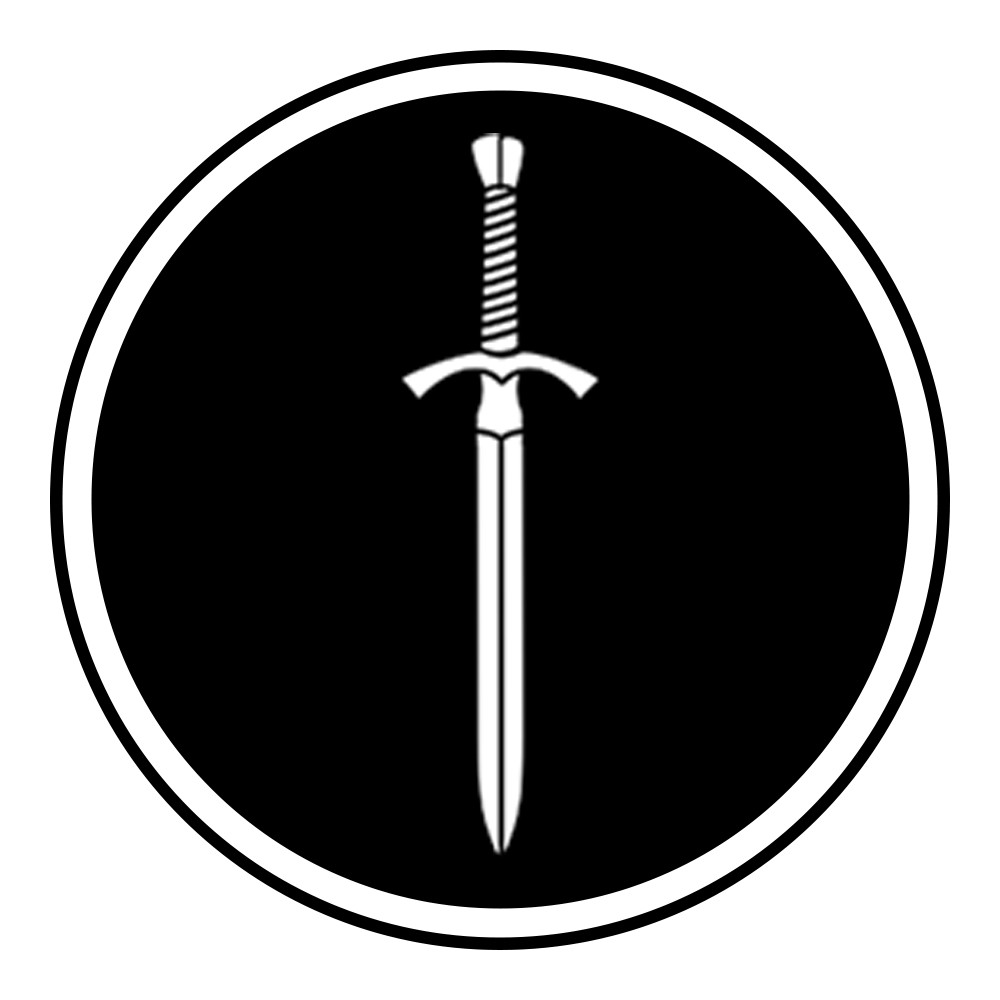
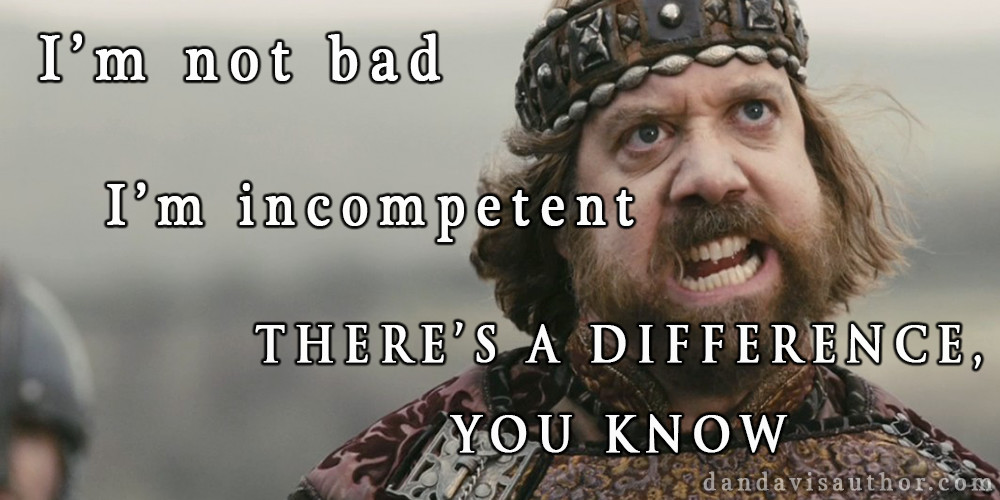
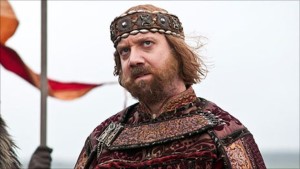
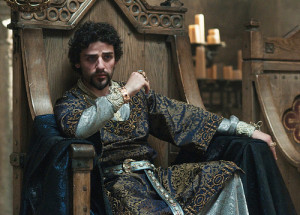
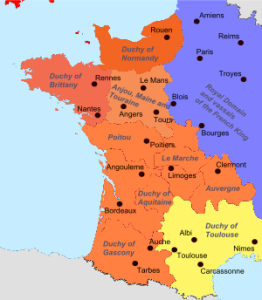
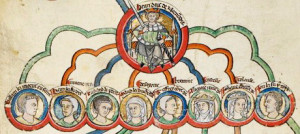
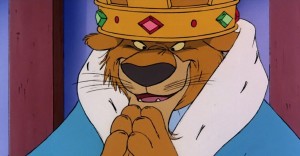
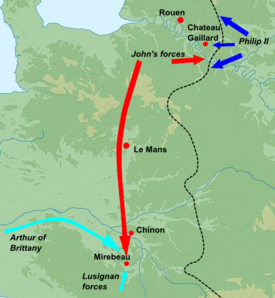
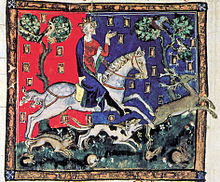

Phew, thank goodness for some Realgeschichte.